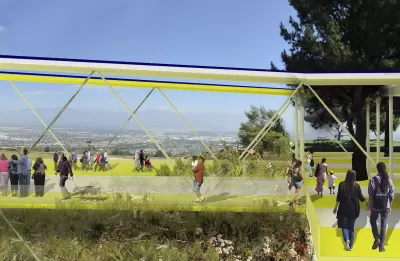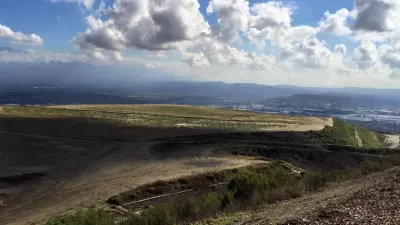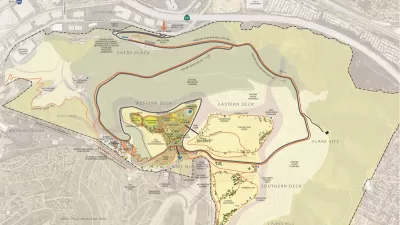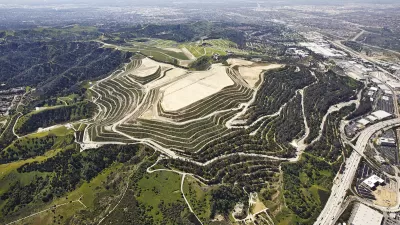The federal grant will help to transform the former Puente Hills Landfill into a 142-acre regional park, bringing much-needed green space and environmental benefits to the San Gabriel Valley.

Los Angeles County's Puente Hills Regional Park project has received a $15 million federal grant. The funding comes from the Land and Water Conservation Fund’s Outdoor Recreation Legacy Partnership Program, part of a larger $254.68 million initiative supporting parks across 24 states. This project, which involves the transformation of what was formerly the second-largest landfill in the country into a regional park, will provide much-needed space for recreation and respite for numerous park-poor communities, advancing environmental justice and sustainability.
Plans for the park include a range of features, such as a panoramic overlook, trails, an amphitheater, and a children’s nature play area, creating a "community core" in the Western Deck. Additionally, the Eastern and Western Horn areas will be developed to include ceremonial spaces, gardens, meadows, and walkways honoring indigenous and early inhabitants. The park is set to enhance biodiversity and provide a sanctuary for wildlife, while offering residents a vibrant space to connect with nature.
The restoration and regeneration of the former landfill is also designed to protect biodiversity, restore wildlife habitats, and address the impacts of climate change. By providing both recreational space and multiple benefits, the Puente Hills Regional Park will be a valuable asset to community members for generations to come.
FULL STORY: Project to convert Puente Hills landfill gets $15 million in push for area’s first regional park

Planetizen Federal Action Tracker
A weekly monitor of how Trump’s orders and actions are impacting planners and planning in America.

Maui's Vacation Rental Debate Turns Ugly
Verbal attacks, misinformation campaigns and fistfights plague a high-stakes debate to convert thousands of vacation rentals into long-term housing.

San Francisco Suspends Traffic Calming Amidst Record Deaths
Citing “a challenging fiscal landscape,” the city will cease the program on the heels of 42 traffic deaths, including 24 pedestrians.

Defunct Pittsburgh Power Plant to Become Residential Tower
A decommissioned steam heat plant will be redeveloped into almost 100 affordable housing units.

Trump Prompts Restructuring of Transportation Research Board in “Unprecedented Overreach”
The TRB has eliminated more than half of its committees including those focused on climate, equity, and cities.

Amtrak Rolls Out New Orleans to Alabama “Mardi Gras” Train
The new service will operate morning and evening departures between Mobile and New Orleans.
Urban Design for Planners 1: Software Tools
This six-course series explores essential urban design concepts using open source software and equips planners with the tools they need to participate fully in the urban design process.
Planning for Universal Design
Learn the tools for implementing Universal Design in planning regulations.
Heyer Gruel & Associates PA
JM Goldson LLC
Custer County Colorado
City of Camden Redevelopment Agency
City of Astoria
Transportation Research & Education Center (TREC) at Portland State University
Jefferson Parish Government
Camden Redevelopment Agency
City of Claremont





























